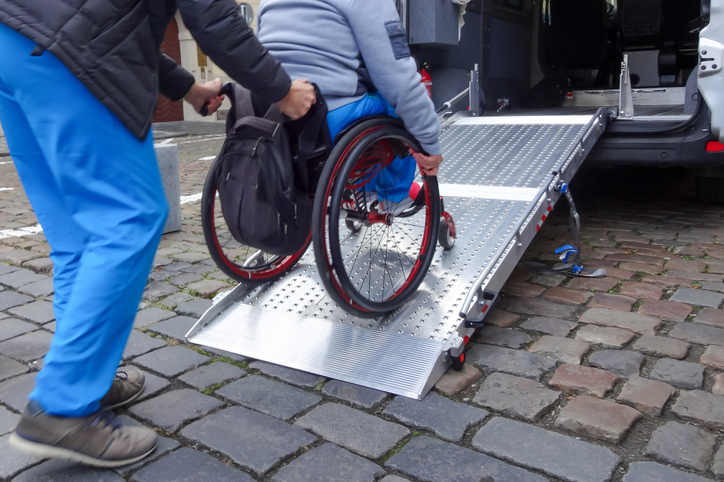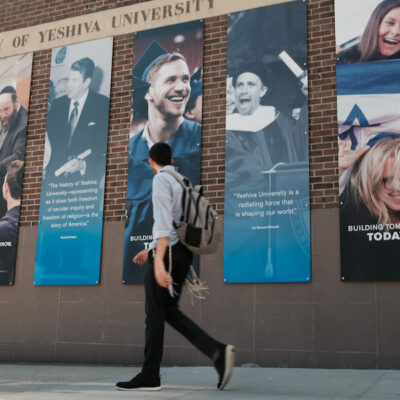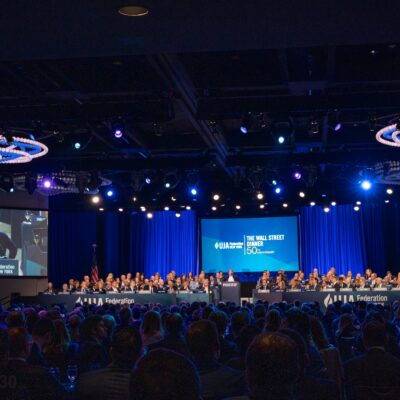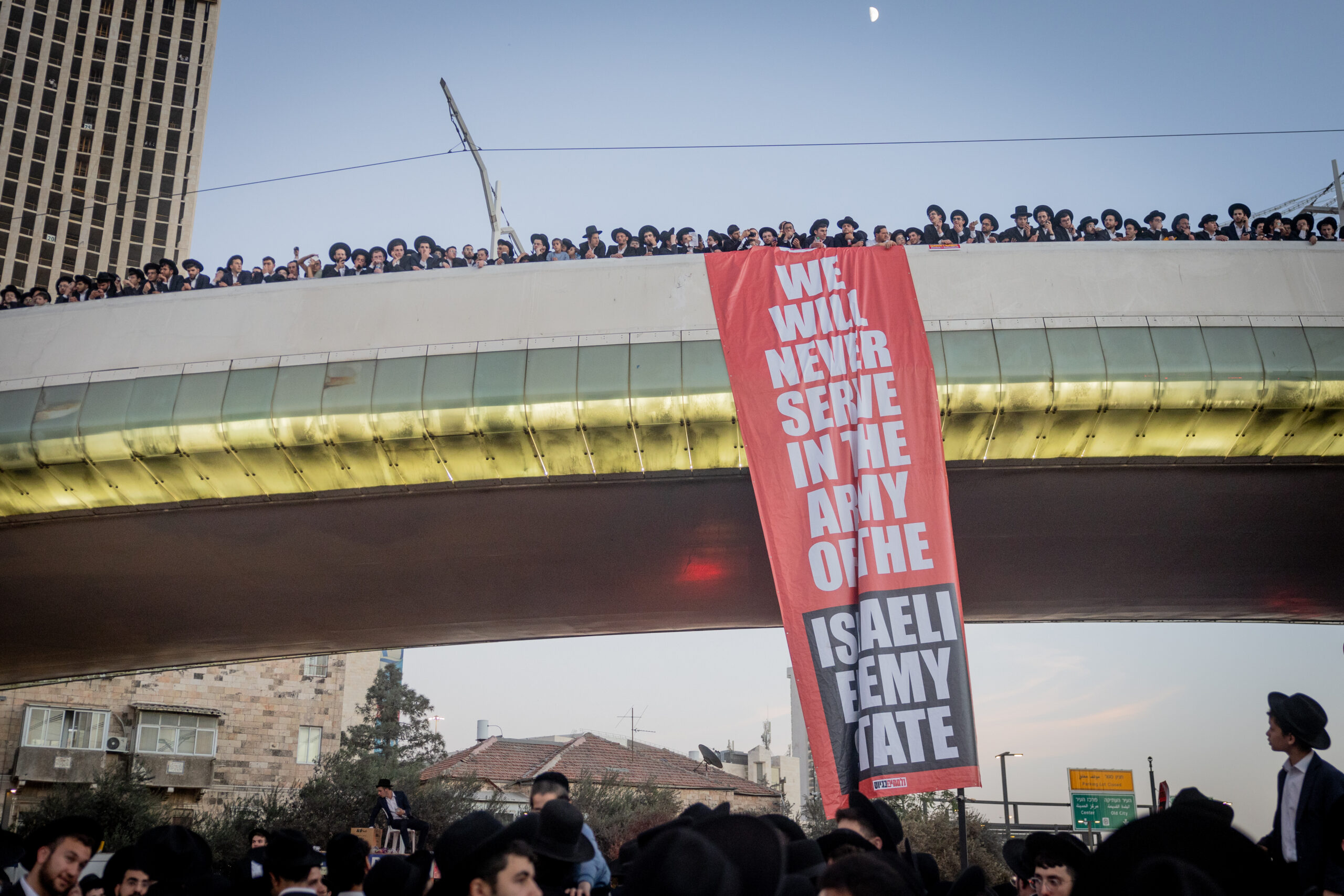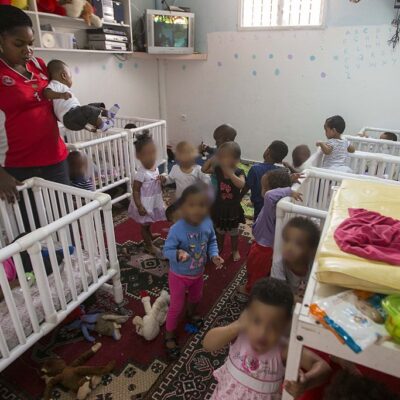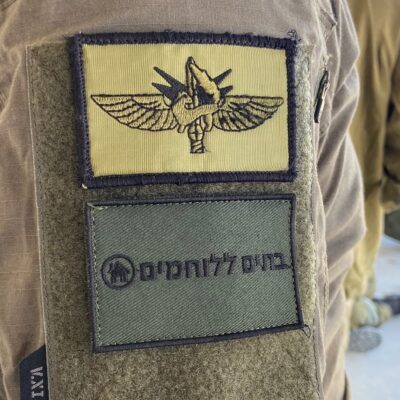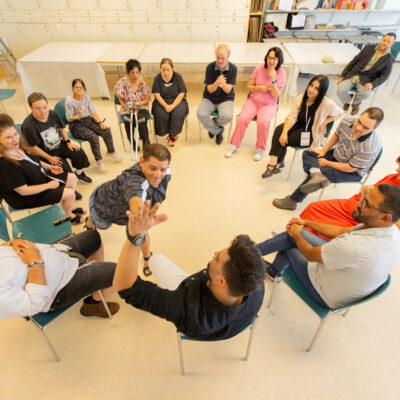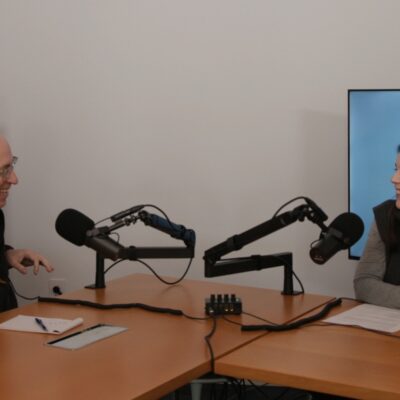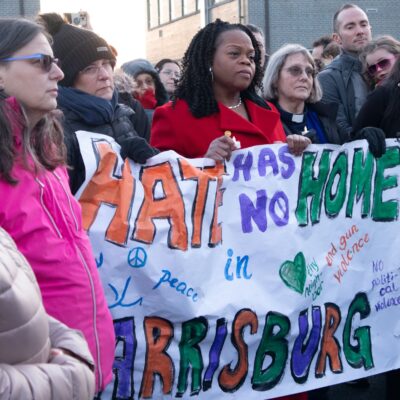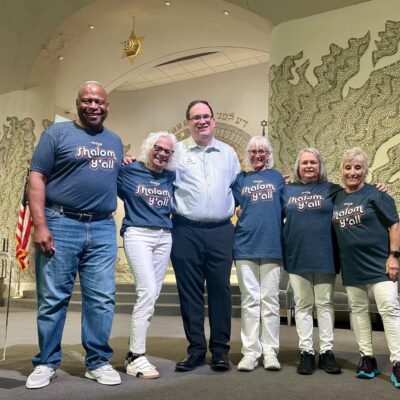The Spirit of Limmud Comes to Modiin
by Michal Bergman
 Limmud Modiin is now behind us. After preparations, deliberations, ups and downs, we are “after.”
Limmud Modiin is now behind us. After preparations, deliberations, ups and downs, we are “after.”
Only the feeling of euphoria, the feeling of the joy of learning, the joy of people and the joy of community – these feelings are still with us, as well as our hope that they won’t fade away too quickly.
So what happened?
People came to learn and teach. Many volunteers, under the orchestration of the one and only Peri, together took care of the program, the site, the food, welcoming participants, registration, and every last detail. They responded to events and developments as if thus had ever been.
In general, the Limmudnikim of Modi’in were divided into three groups: veteran Limmudnikim who came because of their experience with and love of the good old Diaspora Limmud; those who came under the most Israeli procedure of all – friend brings friend (or neighbour, or mother, or girlfriend); and there were even those who came because they heard, because they read, because they love to learn, because they love to study Judaism, because they love…
We started the event with some trepidation – we did not know how many people would come, and feared that the bewildered presenters would find themselves in front of empty seats.
But slowly, slowly, people began to arrive, and with them crept a sense of relief: “Look – it’s actually happening!” The band “Triple A” singing in the reception area, the rooms filling up, and people sitting down for sessions – men and women, young and old, Jews of all types and all streams, of varied beliefs and non-beliefs, with their head-coverings both visible and invisible – the men and women of Modi’in, lovers of Limmud.
During breaks between sessions, people stood in the corridors – each with program booklet in hand, sipping coffee, nibbling cake, and chatting with old and new friends – trying to make the most classic Limmud decision of all: which session shall we go to next, and which will we have to miss out on?
And here, between sessions, hovered the spirit of Limmud over Modi’in – with its informal atmosphere, with smiles on faces, with acquaintances both new and renewed, and with a special sense of belonging, as participants not only chose to come and learn, but had to keep on actively choosing which session to go to. So in the various different sessions there were discussions about the loves, disputes, and marriages of the Tannaim and the Amoraim; or about the feminist fragmentation of religious Zionism and its implications for Jewish life in Israel and abroad. There were those who learned to say the Sh’ma in sign language, and those who met various Jews on the silver screen – from Shylock to contemporary religious Jews, from an American Jew by choice to Jews eating Jewish food in the movies… they were all there. Korach and public criticism in a session for adults, next to Rav Kook and a friendly dragon in a show for kids. God in Israeli art, next to the delegitimization campaign against the State of Israel. A feminist-Jewish children’s book, next to the IDF rescue operation in Haiti. Music was played in various sessions – from the band “Kolot,” to the songs of Ariel Horowitz; and the next day, the “Psalms of the Perplexed” of Kobi Oz and his late grandfather, the paytan: “eilu v’eilu” indeed. Life and creativity, love and longing, song and poetry, laughter and pain – presenters and their teaching, learners and their choices, all contributing to Limmud.
Adults learned. Children created works of Jewish art. Families sang. Towards the end, musicians played Shabbat melodies and a group of people sang songs of Israel and songs of prayer, and the Shabbat spirit descended upon the children playing, the adults singing, and the babies in the arms of their parents.
In his show, Kobi Oz sang his song Prayer of the Secular:
Rabban Yohanan ben Zakkai wept on high out of sadness, or maybe happiness,
And the rain fell, or he shed a tear.
My heart let out a sigh.
All are Your students, O Strong Hammer, Candle of Israel, Right-hand Pillar,
Bless Your children of all kinds: both religious and secular!
At Limmud Modi’in it didn’t rain – actually, a desert heat covered the city. Nevertheless, by the end of the event we could all join in with Kobi’s truly Jewish prayer, and add, with joy: Amen and amen. That’s what happened in Modi’in. Long may it continue.
Michal Bergman was a volunteer at Limmud Modi’in.
Limmud Modi’in is supported by Melitz.

 Add EJP on Google
Add EJP on Google